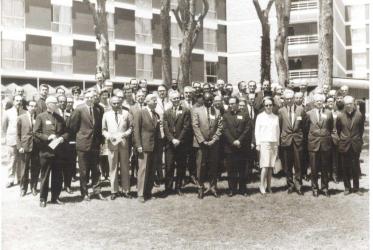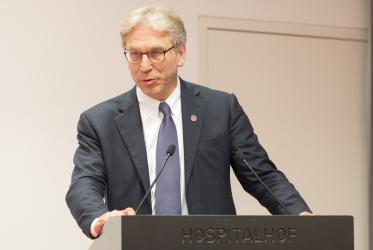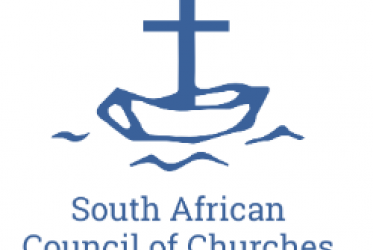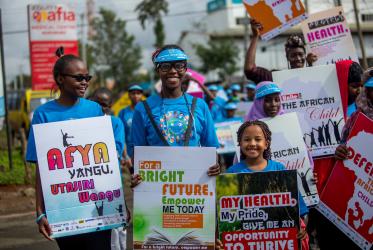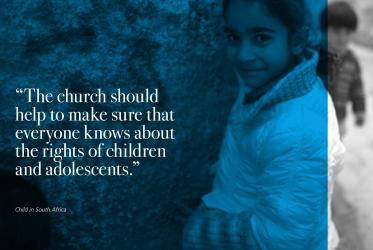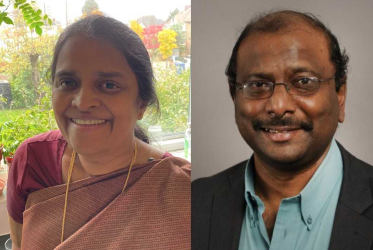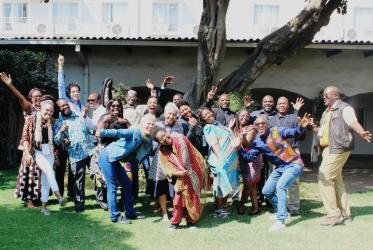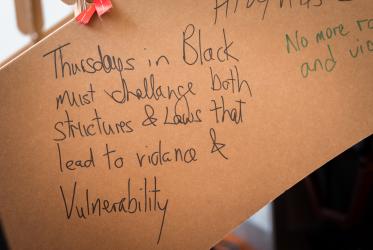Displaying 181 - 200 of 899
09 January 2020
WCC, UNICEF celebrate commitment of churches to children
20 November 2019
Two candidates nominated for WCC general secretary
01 November 2019
Churches in southern Africa stand against violence, xenophobia
10 October 2019
Kenya mourns the late Prof. Samuel John Mbiti
08 October 2019
WCC well-represented in Religions for Peace leadership
07 October 2019
When you strike the women, you strike a rock
18 September 2019

